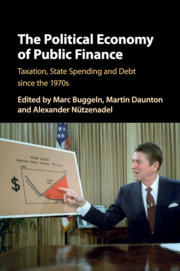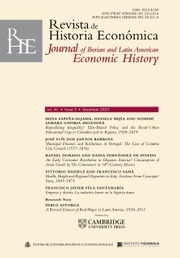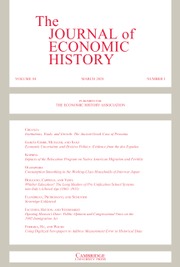After the Virus
Why was the UK so unprepared for the pandemic, suffering one of the highest death rates and worst economic contractions of the major world economies in 2020? Hilary Cooper and Simon Szreter reveal the deep roots of our vulnerability and set out a powerful manifesto for change post-Covid-19. They argue that our commitment to a flawed neoliberal model and the associated disinvestment in our social fabric left the UK dangerously exposed and unable to mount an effective response. This is not at all what made Britain great. The long history of the highly innovative universal welfare system established by Elizabeth I facilitated both the industrial revolution and, when revived after 1945, the postwar Golden Age of rising prosperity. Only by learning from that past can we create the fairer, nurturing and empowering society necessary to tackle the global challenges that lie ahead - climate change, biodiversity collapse and global inequality.
- Reveals why the UK was so lacking in resilience after decades of neoliberal economics that it was unable to respond effectively to the pandemic
- Argues that Britain's history, going right back to the reign of Elizabeth I, demonstrates that welfare spending has always been a vital stimulus for, not a burden on, economic growth
- Presents readers with practical proposals, inspired by our own history, which provide a blueprint for building an empowering society that will enable us to tackle the bigger challenges that are coming after COVID-19
Reviews & endorsements
'… original and compelling.' Will Hutton, The Observer
'… (a) wonderfully readable and historically informed account.' Michael Marmot, The Lancet
'A critically important assessment of the current state of governance of healthcare and the economy in the UK - uniquely placed in historical context. The disastrous mismanagement of the COVID-19 pandemic provides an ideal launch-pad for this critique, which also demonstrates a clear path to a better future. It should be in the hands of everyone in the country who cares about and has responsibility for our future.' Sir David King, former UK Chief Scientific Adviser and Climate Envoy, Chair of Independent SAGE
'What lessons does the past hold for shaping a better post-pandemic future? This book, with its powerful account of the intolerable inequalities of the present, argues for a revival of the moral foundations of the successful social contracts of earlier periods of British history.' Diane Coyle, author of Markets, State and People: Economics for Public Policy
'It is quite a feat to trace the vagaries of English social history from the Elizabethan Poor Law, through mismanagement of the COVID-19 pandemic, to the seven pillars of what a good society should look like. But these wonderfully accessible authors have done it. Bravo.' Sir Michael Marmot, author of Build Back Fairer: The COVID-19 Marmot Review
'Impressive analysis of how 40 years of neoliberalism severely increased inequalities and the impact of the pandemic, and how a secure, mutually supportive society with a strong economy can be restored. Let's hope our government finds it inspiring and acts accordingly.' Pat Thane, author of Divided Kingdom. A History of Britain, 1900 to the Present
Product details
September 2021Paperback
9781009005203
444 pages
198 × 130 × 25 mm
0.49kg
Available
Table of Contents
- Introduction
- Part I. COVID-19 was always a matter of 'when' not 'if'
- 1. The extraordinary history of pandemic control
- 1.1 An ever-present threat
- 1.2 The myth of progress
- 1.3 How pandemics spread
- 1.4 Pandemics and the changing role of the state: from divine to human responsibility
- 1.5 A plague on all our houses – learning to control pandemics
- 2. Pandemics are not random 'Black Swans'
- 2.1 We were expecting a pandemic, so why was the UK so unprepared?
- 2.2 Your money or your life
- 2.3 Light at the end of the tunnel
- Part II. Why COVID-19 was a perfect storm
- 3. The fragile society of a neoliberal state
- 3.1 The neoliberal project
- 3.2 The capture of democracy
- 3.3 How COVID-19 was able to wreak havoc
- 3.4 A 'Just in time' health service
- 3.5 A 'Cinderella' social care service
- 3.6 A diminished state
- 4. Inequality saps resilience
- 4.1 Inequality and the laissez faire state
- 4.2 'This is not an easy life any more, chum'
- 4.3 Are we bothered?
- 4.4 It's the economy stupid
- 4.5 The 'Burning Injustices'
- 5. The pandemic onslaught
- 5.1 Those who lived and those who died
- 5.2 The tattered safety net
- 5.3 The COVID generation
- 5.4 Where's next?
- 5.5 Looking to the future
- Part III. COVID-19 and the choices we now face
- 6. 'Too big to fail?' – we need a payback this time
- 6.1 Lessons from the 2007–08 financial crash
- 6.2 What does all this have to do with a 2020 pandemic?
- 6.3 A first look at the winners and losers
- 6.4 Securing the pandemic payback – how are things looking this time?
- 6.5 Is the old order beginning to crack?
- 7. No time for austerity now
- 7.1 So we found the magic money tree
- 7.2 When austerity was in vogue
- 7.3 Let's just put it on the tab
- 7.4 Storm clouds ahead?
- 8. Who has the deepest pockets?
- 8.1 A better future and a proactive state
- 8.2 Will we find the pot of gold?
- 9. Re-thinking welfare
- 9.1 Is it time for a no-strings attached Universal Basic Income?
- 9.2 'Dignity and Security'
- 9.3 Universal services
- 9.4 Who cares?
- 9.5 What of later life?
- Part IV. After the virus – Who do we want to be?
- 10. Casting aside the neoliberal state
- 10.1 Homo Economicus and the myth of rationality
- 10.2 History and Morality
- 11. The birth of a collectivist individualism
- 11.1 How Elizabeth I gave us the world's first welfare society
- 11.2 The turn away from collectivist individualism after 1834
- 11.3 The Boer War and the 'New Liberal' reforms
- 11.4 Slaying the giants – Beveridge and the 'Golden Age'
- 11.5 Wealth, redistribution and progressive taxation
- 11.6 What lessons can we take from history?
- 12. An empowering state to build a nurturing society
- 12.1 What does it mean to have an empowering state?
- 12.2 Freedom and the state
- 12.3 Collective commitment to a nurturing society
- 12.4 The case for fair and progressive contributions
- 12.5 Democratic participation and devolved power
- 12.6 Our natural environment and the empowering state
- 13. Seven Pillars of Empowerment
- 13.1 A Nurturing Society: Respect and inclusive support for all
- 13.2 Ethical Capitalism: Working with business to redefine our values
- 13.3 Fair Contributions: Full participation by the prosperous
- 13.4 Open Public Discourse: Enabling all voices to have an equal hearing
- 13.5 Measuring what we value: Signalling the changes we need
- 13.6 A Sustainable Future: Responsible stewardship of our planet's resources
- 13.7 Participatory Politics: Reviving democracy and civic engagement
- 14. Greater even than a pandemic
- 14.1 Conclusion.







